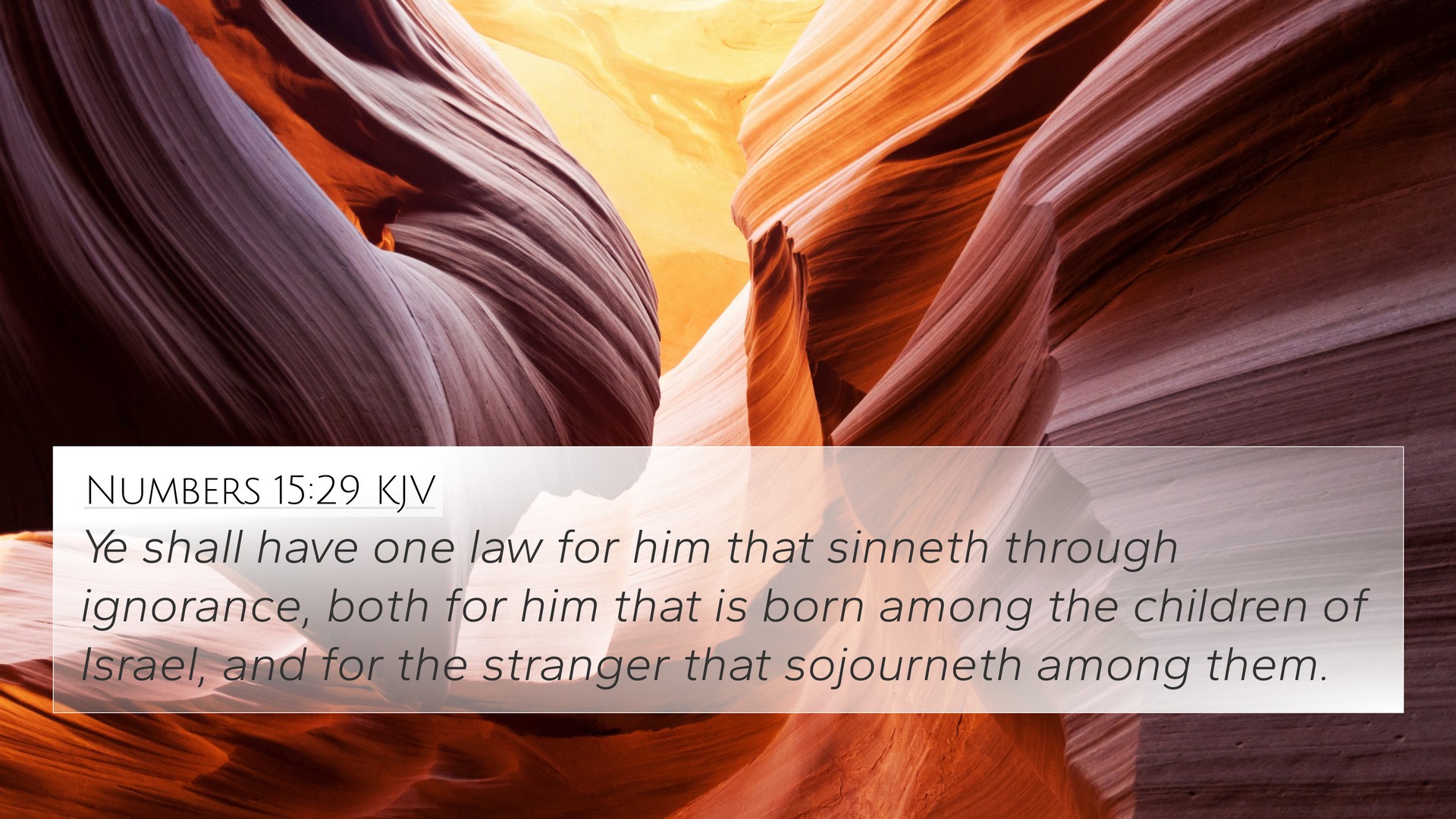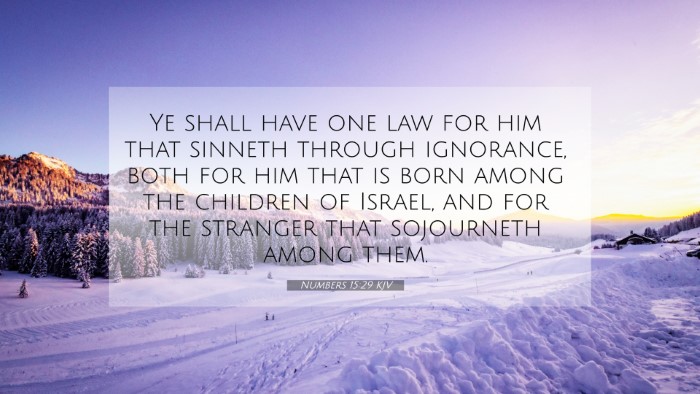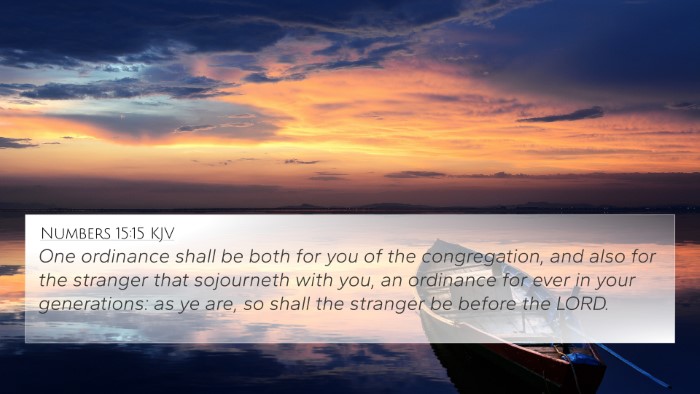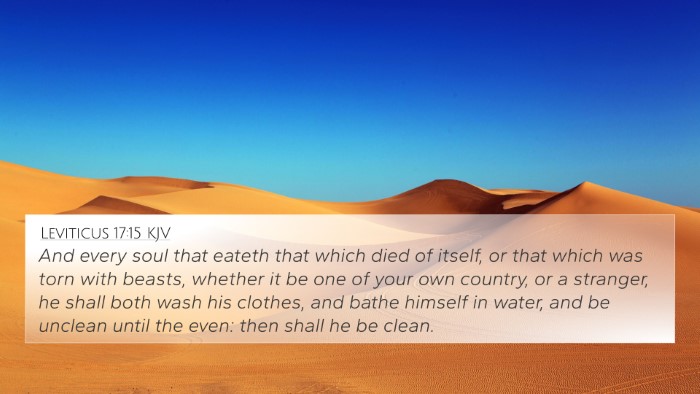Understanding Numbers 15:29
Numbers 15:29 states: "You shall have one law for him who sins unintentionally, for him who is native among the children of Israel and for the stranger who dwells among them." This verse emphasizes the principle of equal accountability before God, regardless of one's background or status.
Key Insights from Commentaries
- Matthew Henry: Henry explains that God's law applies uniformly to all individuals. Whether Israelite or foreigner, everyone is under the same standard of behavior. This highlights God’s impartiality and the necessity for righteousness among all people.
- Albert Barnes: Barnes discusses the significance of unintentional sins, emphasizing God’s mercy. The law provides a structure for repentance and forgiveness, ensuring that even those who err without malice are treated fairly and with compassion.
- Adam Clarke: Clarke points out that the verse reinforces the unity of the community in adhering to God's laws. The connection between the local customs and the divine commandments shapes a cohesive society where everyone is responsible for their actions.
Thematic Connections
This verse underscores crucial themes within the Bible:
- The Equality of All Believers: God’s laws are universal (Galatians 3:28).
- Mercy in Judgement: The balance of justice and mercy is highlighted in many scriptures (Matthew 5:7).
- Intentional vs. Unintentional Sins: The differentiation is critical for understanding sin as seen in 1 John 5:16-17.
Cross-References
This verse relates significantly to several other passages, providing a rich framework for understanding the interconnectedness of scripture. The following verses serve as cross-references:
- Leviticus 4:27-31: Discusses guilt offerings for unintentional sins.
- Exodus 12:49: Emphasizes the same law for the native and foreigner.
- Romans 2:6-11: Discusses God’s impartiality in judgment.
- James 2:1-9: Advocates against favoritism, echoing the inclusivity of God’s law.
- 1 Peter 1:17: Discusses God as an impartial judge.
- Matthew 12:37: Links one’s words and actions to God's judgment.
- Psalms 89:14: Highlights the nature of justice and righteousness.
Importance of Cross-Referencing
Understanding the connections between Bible verses is essential for comprehensive study. Here’s why:
- Holistic Understanding: Cross-referencing aids in grasping the full message of scripture by linking related teachings.
- Identifying Themes: Thematic Bible verse connections help in noting recurring divine principles across the scriptures.
- Improved Interpretation: Cross-referencing Bible study methods offer deeper insights into biblical themes and narratives.
Conclusion
Numbers 15:29 is not just a verse about laws; it speaks volumes about the nature of faith, community, and God’s character. By engaging with this verse through cross-referencing and comprehensive studies, believers can enhance their understanding and relationships with the text. As we explore connections between Bible verses, we find a rich tapestry that reveals God’s covenantal love and justice for all humanity.







